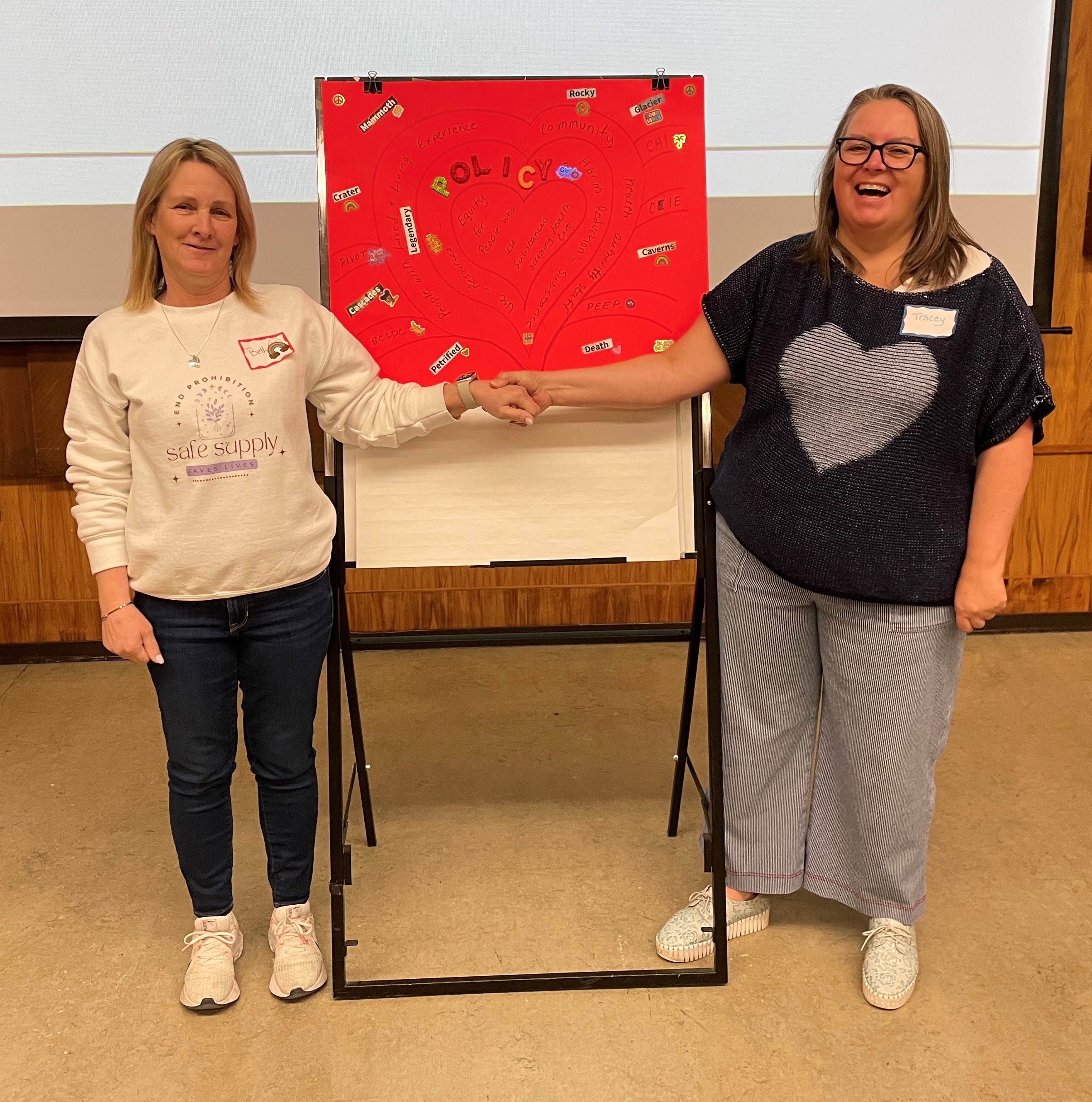In the eight years since the toxic drug crisis was declared a public health emergency in B.C. (on April 14, 2016), 2,428 sons, daughters, parents, grandparents, loved ones, neighbours and friends have been lost in the Island Health region (as of January 2024).
Members of Island Health’s Harm Reduction Team, who work tirelessly to support people who use substances to achieve better health outcomes, reflect on this somber anniversary.
Beth Haywood knows of the devastating effects of the toxic drug crisis all too well: she used crack cocaine and heroin for 20 years.
“Stigma kills,” said Haywood, a peer project coordinator.
The mother of four experienced stigma when accessing health services. Her lived experience using substances in the past helps her provide compassion and empathy in her role now on the Harm Reduction Team. This also assists her in her work to help develop improved policies and services.
“We need to see people as equal and deserving of our continued love and support. The harm reduction work that we do is grounded in an equity lens, with the belief that people who use substances deserve the same care and service we give anyone with any health condition. You wouldn't turn your back on someone who had cancer, just like we don’t turn our backs on someone struggling with substance use,” Haywood said.
Tracey Thompson, a harm reduction coordinator at Island Health, has been using the principles of harm reduction to guide her work for more than 20 years.
“I’ve seen the healthcare system make great strides to expand and improve services but despite this, the wicked nature of the public health emergency causes distress, as injury and death related to unregulated substances continue to increase,” she said.
Photo: Beth Haywood (left) and Tracey Thompson (right)
Harm reduction for substance use is an approach Island Health staff are guided by that “meets people where they’re at in the moment”. This approach accepts that people may continue to use substances while working towards goals related to improving health, reducing consumption or stopping use. Harm reduction is a critical part of the care and treatment continuum that also recognizes that recovery is a self-driven, lifelong journey. By withholding judgement and positively encouraging people with education, support, treatment and aftercare, staff help reduce the harms associated with substance use.
Research shows harm reduction services and strategies can:
- Reduce stigma
- Increase access to support programs, and health and social services
- Reduce sharing of substance use equipment
- Reduce hepatitis C and HIV
- Reduce deaths and harms from drug poisoning and substance use
Thompson’s colleague, Kayla Huggard, also a harm reduction coordinator, noted that the toxic drug crisis as a public health emergency is influenced by the social determinants of health.
“These are non-medical factors like housing, income, and social connection, she said. “Everyone deserves safe and appropriate access to healthcare.”
Island Health offers a range of safe, respectful health care services for people seeking to manage their substance use. Services offered include drug-checking and overdose prevention, prevention and early intervention, counselling, medications to treat substance use disorder, and services for detox, treatment and recovery. These programs and resources are now easier to locate through the implementation of the single toll-free Service Link phone line, 1-888-885-8824, providing information and help navigating services for substance use, harm reduction, and mental health across Island Health.
Learn more about Island Health’s Harm Reduction for Substance Use Services.

